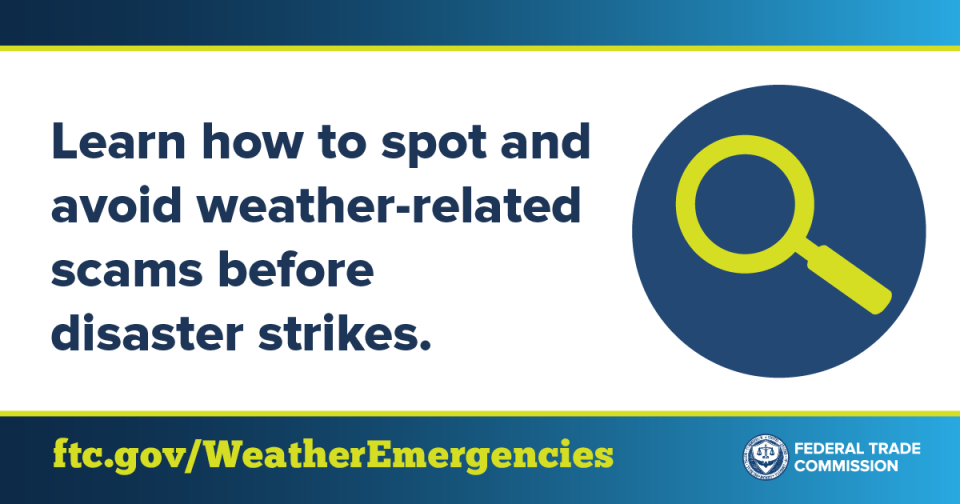With more powerful and frequent natural disasters — even affecting areas where they weren’t typical — you might have something like “update or make my emergency plan” on your to do list. The FTC has information and tools to help you avoid fraud as you prepare and recover from an emergency. And this National Preparedness Month we’re partnering with FEMA to bring you free webinars in English and Spanish with step-by-step guidance to get ready.
To start making an emergency and recovery plan that includes how to detect disaster-related scams:
- Find information to help you prepare before an emergency. Start at ftc.gov/WeatherEmergencies or ftc.gov/EmergenciasClimaticas in Spanish. As all FTC’s free resources, the site is mobile-friendly, so you have access to the information anytime and wherever you need it.
- Attend a free FTC/FEMA webinar. The sooner you make an emergency plan, and the more you know about disaster scams will help you spot and avoid scams as you recover.
- Register to join Weather Emergencies & Fraud Prevention: Preparing, Managing & Recovering on September 17, 2024 at 2pm EST.
- Register to join (in Spanish) Emergencias Meteorológicas y Prevención del Fraude: Preparación, Manejo y Recuperación on September 18, 2024 at 2pm EST.
- Order and share free FTC materials. Picking Up the Pieces After a Disaster is a customizable handout to help you avoid common post-disaster scams, protect your personal information, and get back on track financially. Download a digital copy available in multiple languages to print and distribute in your community. And order free print publications at ftc.gov/bulkorder.
Suspect a disaster-related scam? Every report helps us build cases, work to stop scammers, and alert others about the current trends. Even if you didn’t lose money, tell the FTC and encourage others to report in their preferred language.
- Report in English: ReportFraud.ftc.gov
- Report in Spanish: ReporteFraude.ftc.gov
- Report scams in other languages: call (877) 382-4357 and press 3 to speak to an interpreter in your language.


Thank so much.